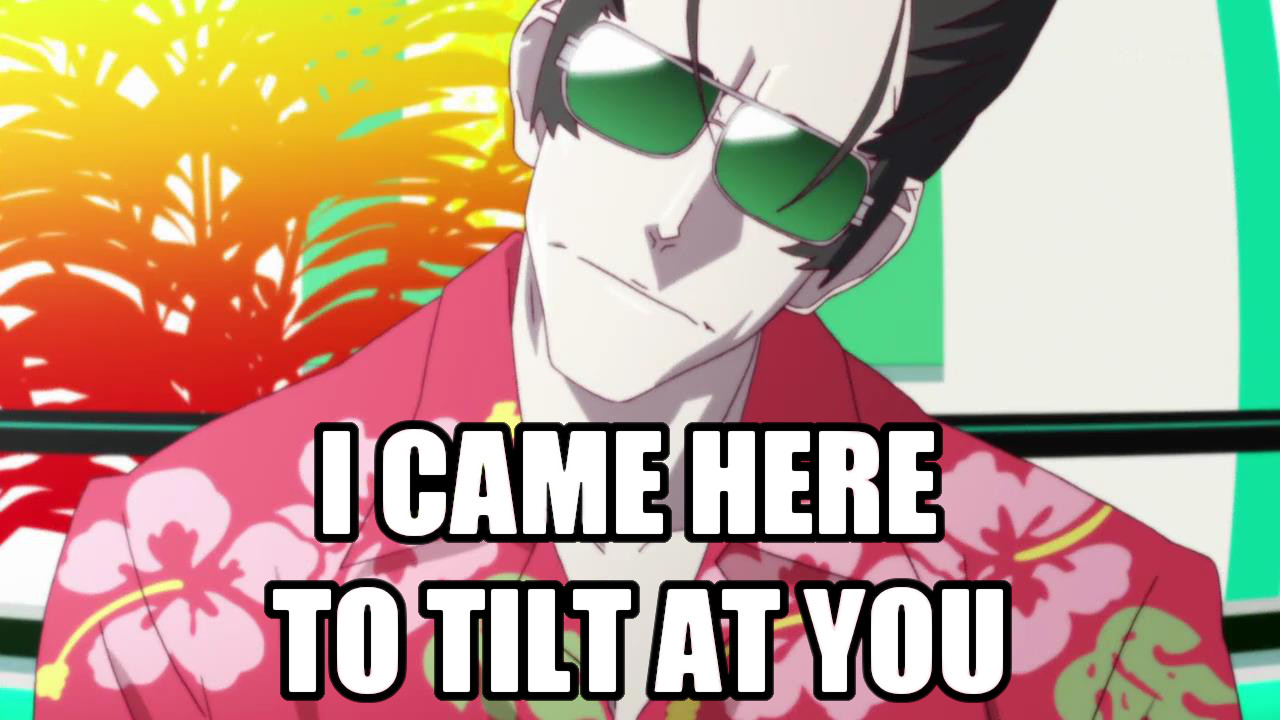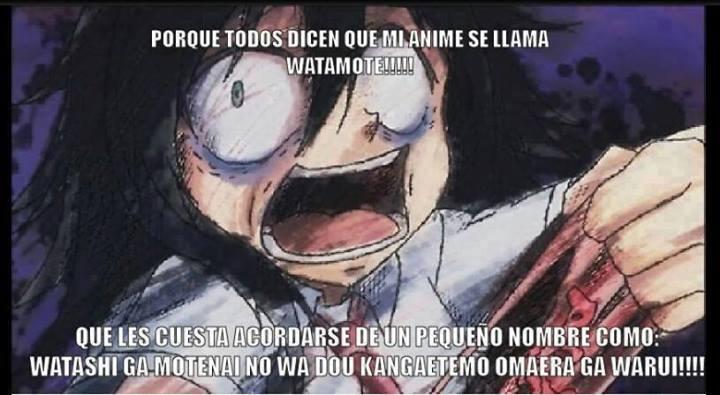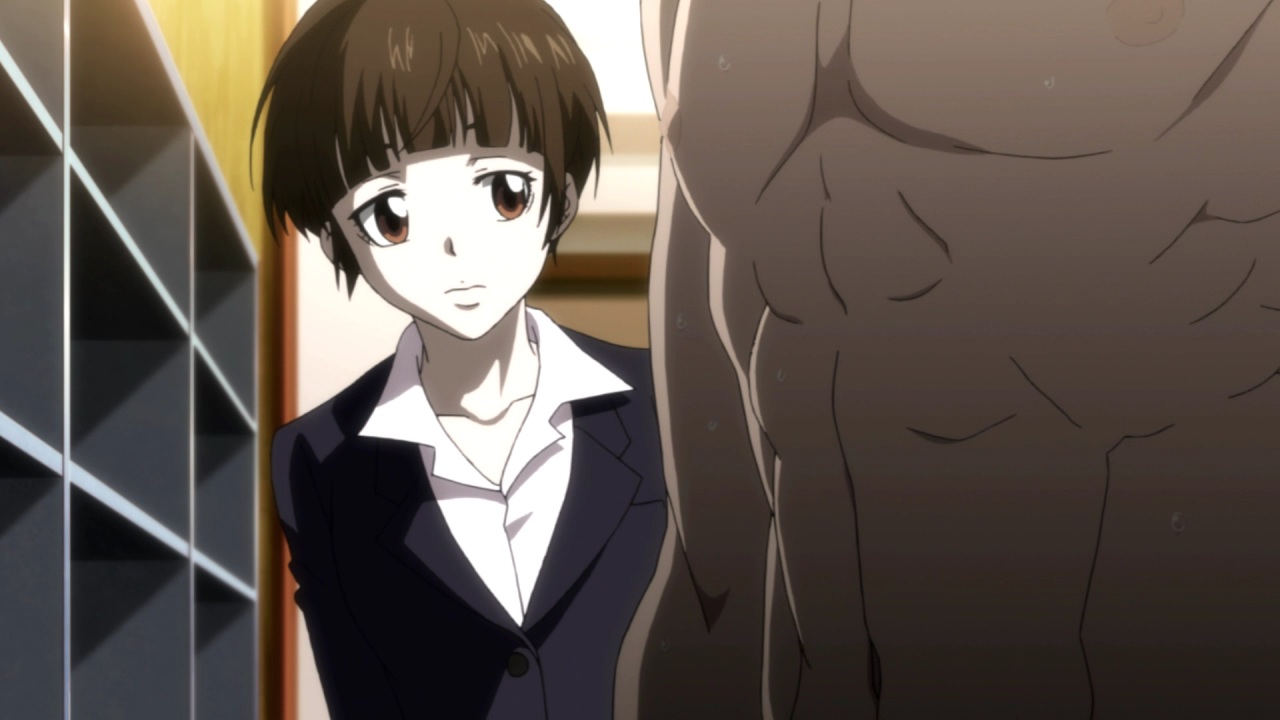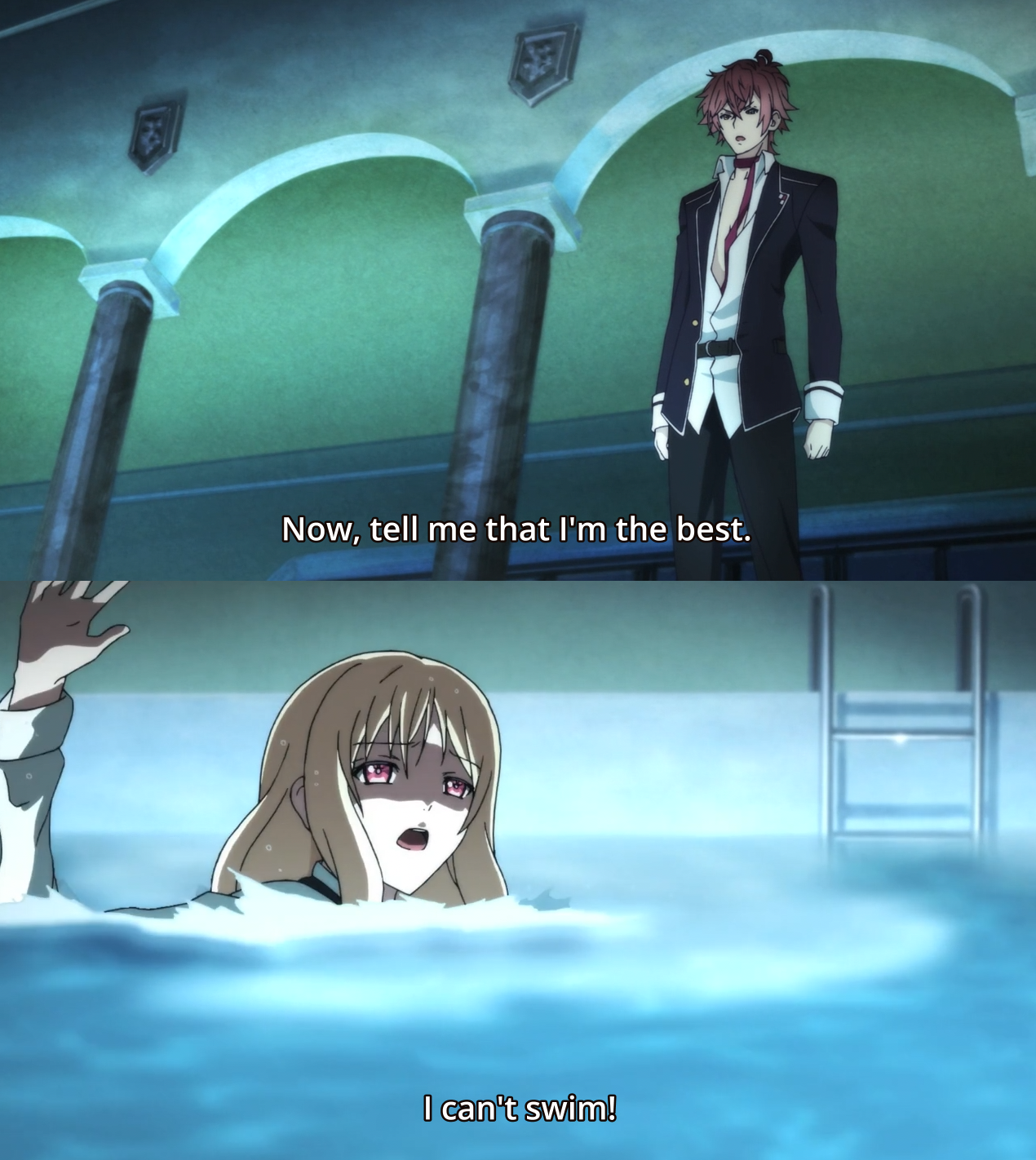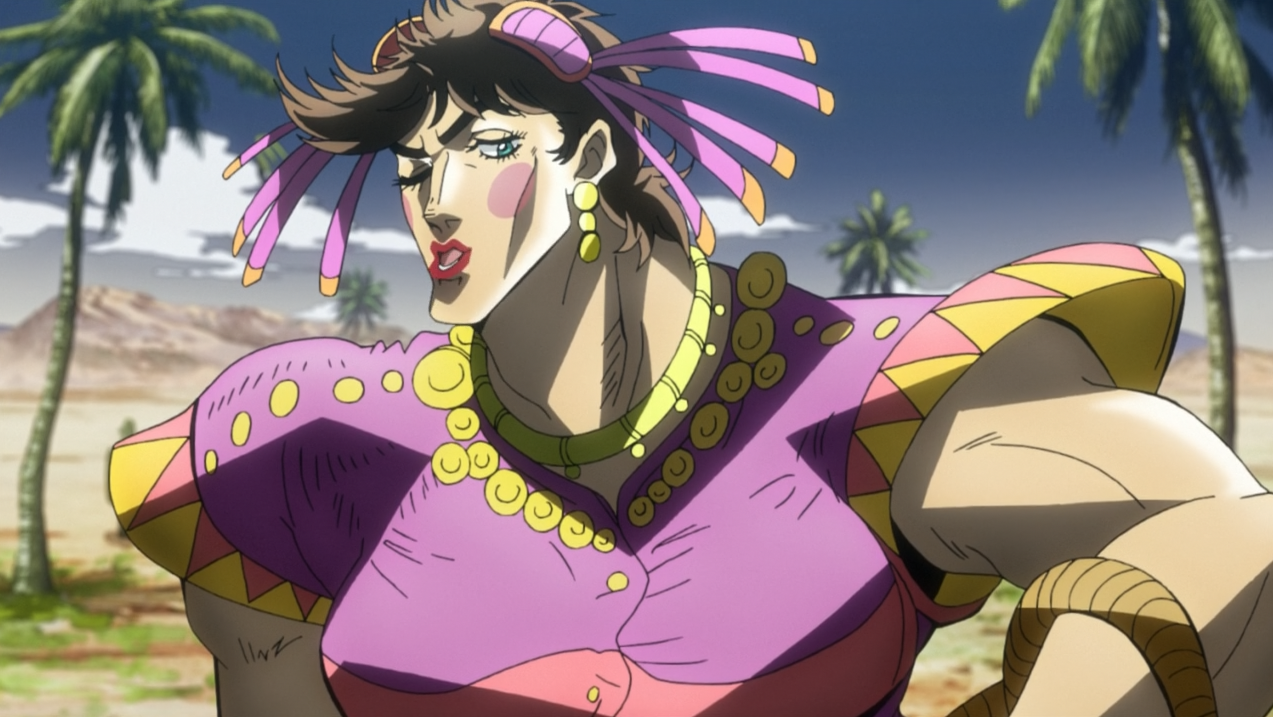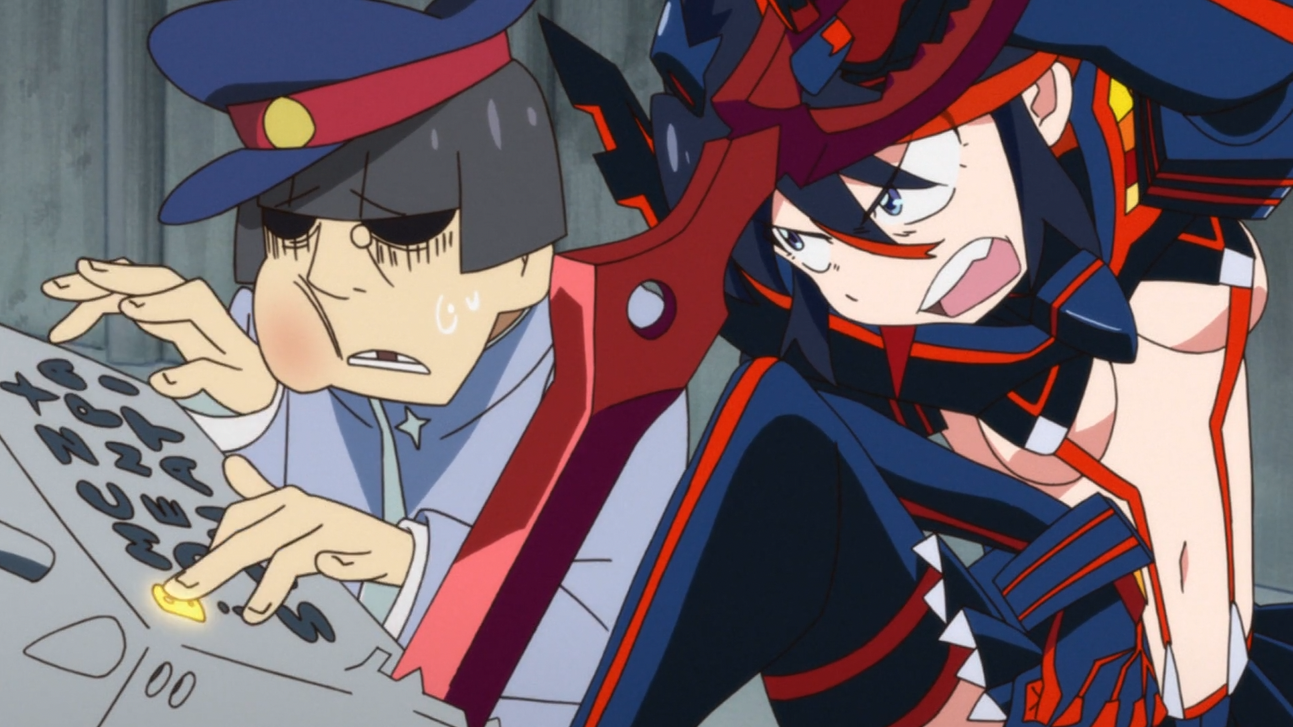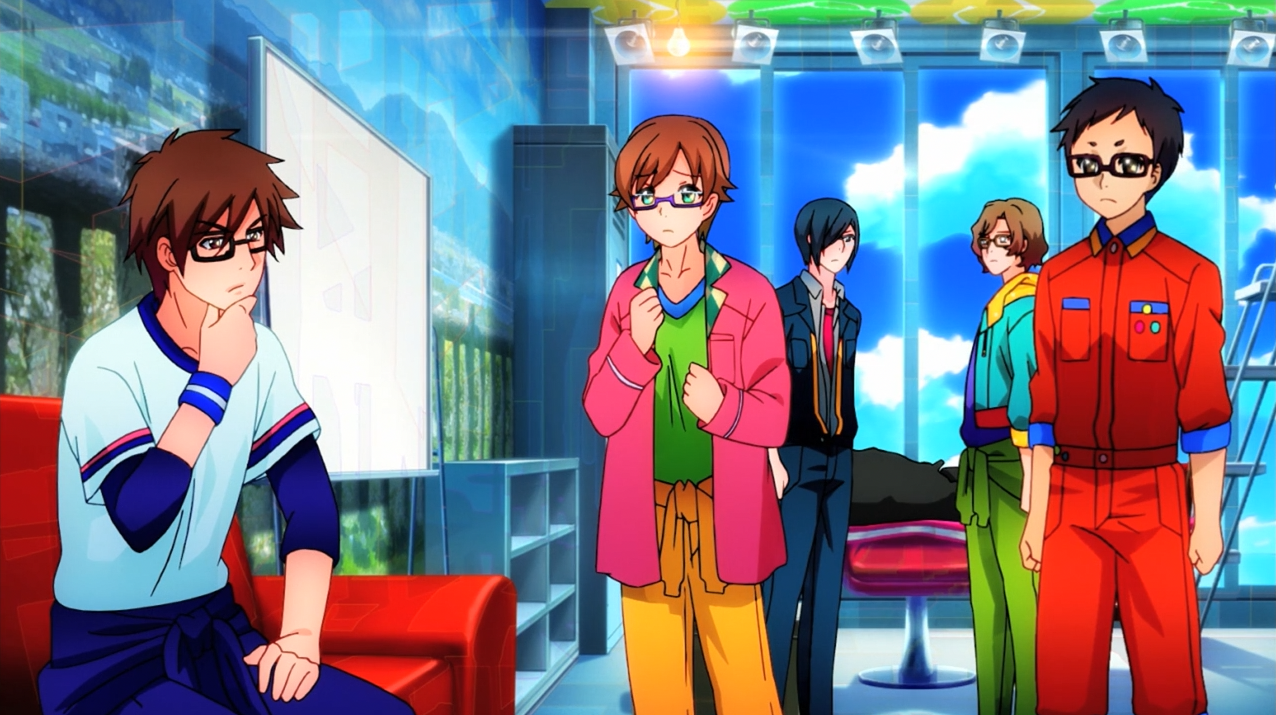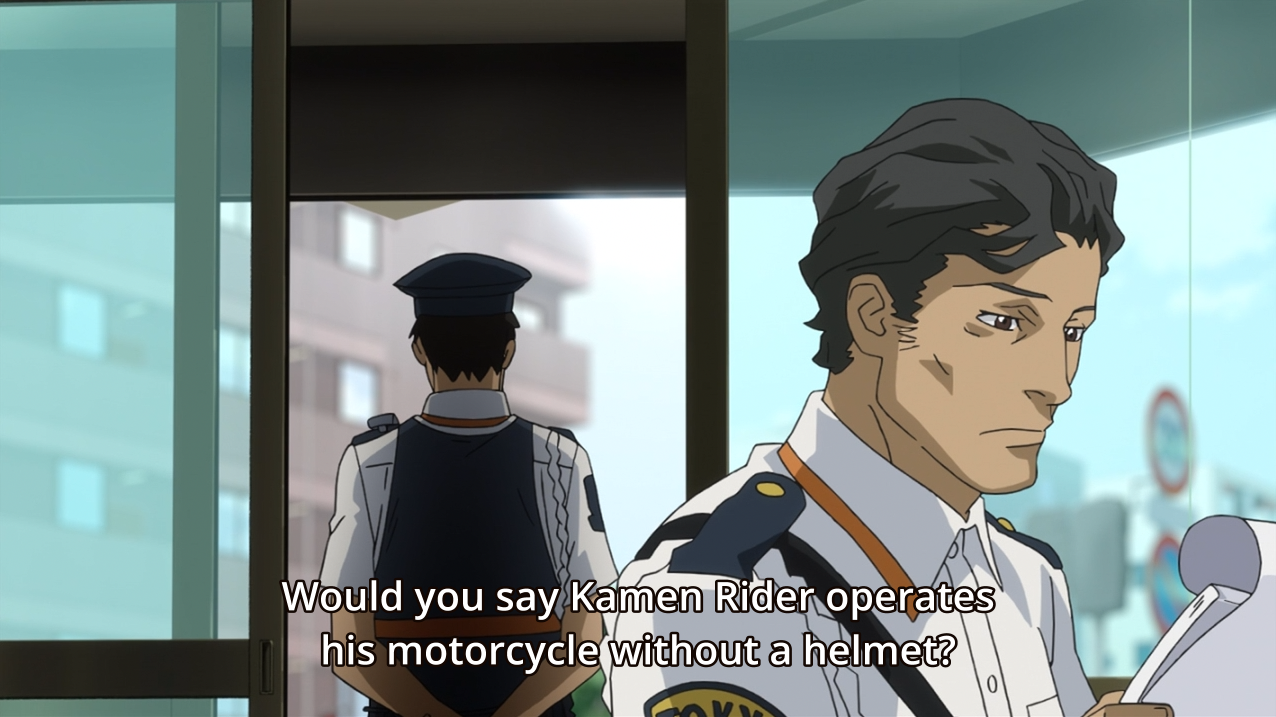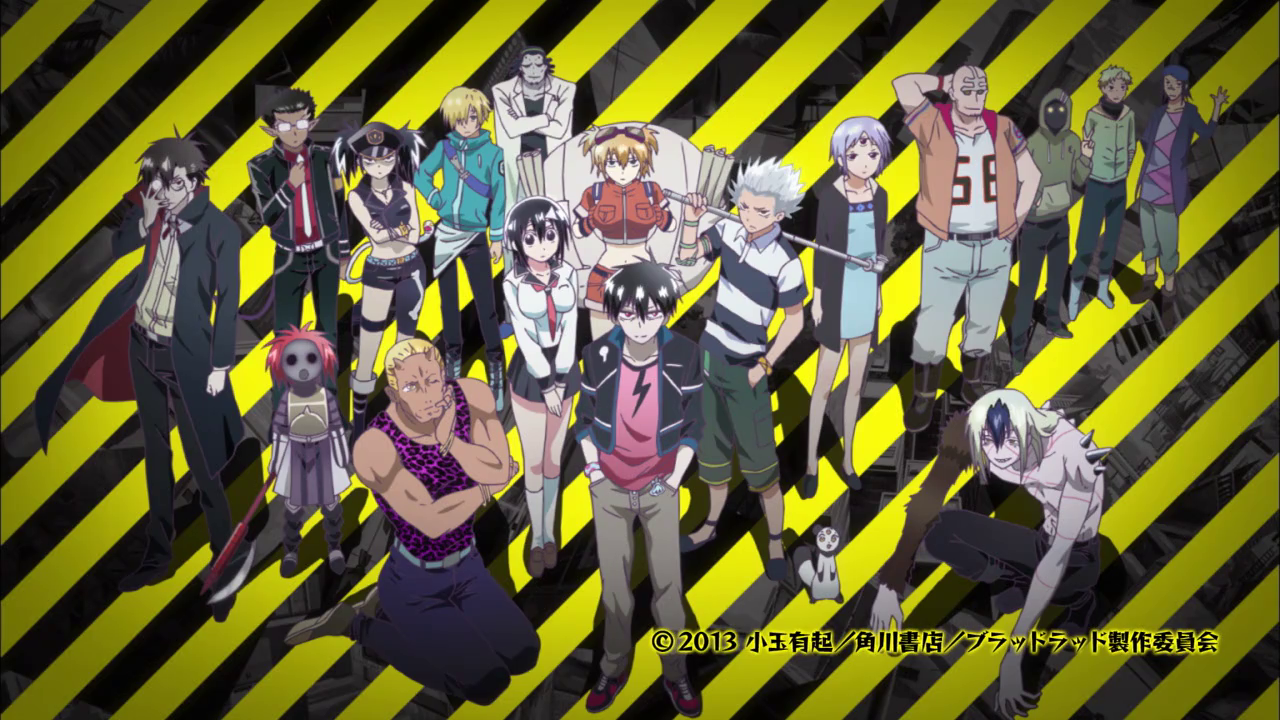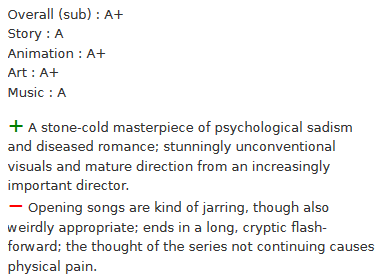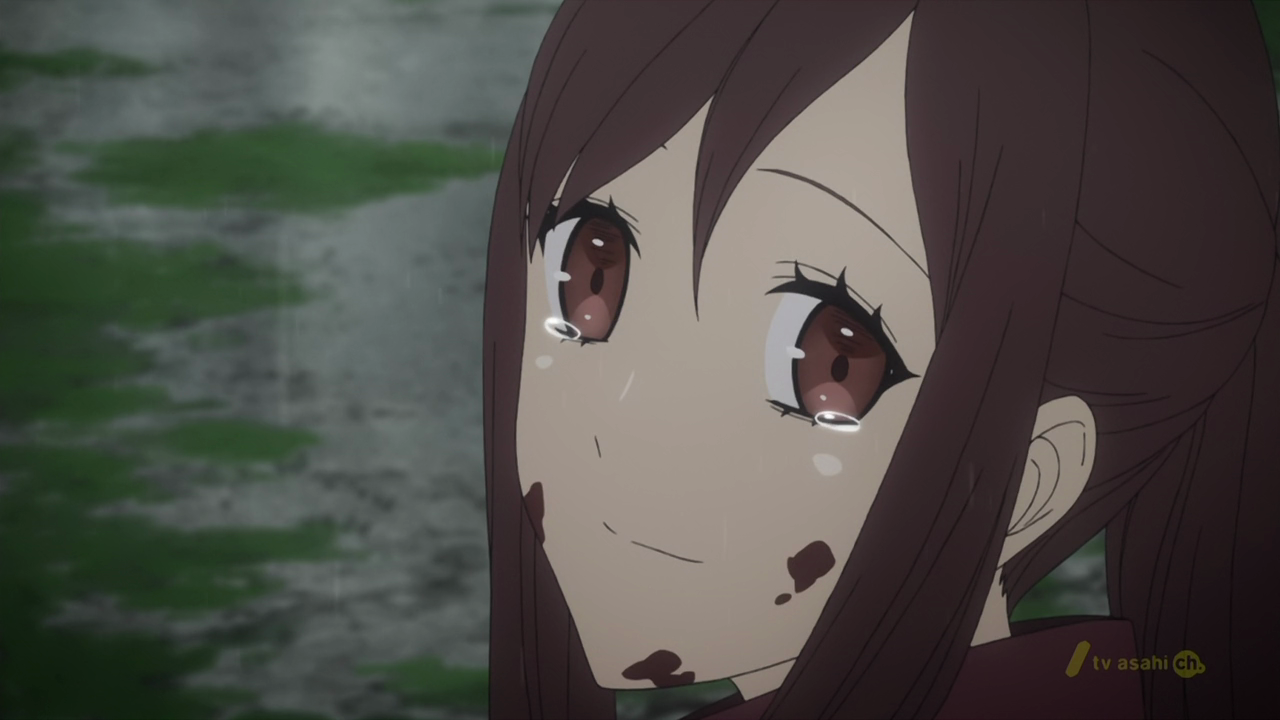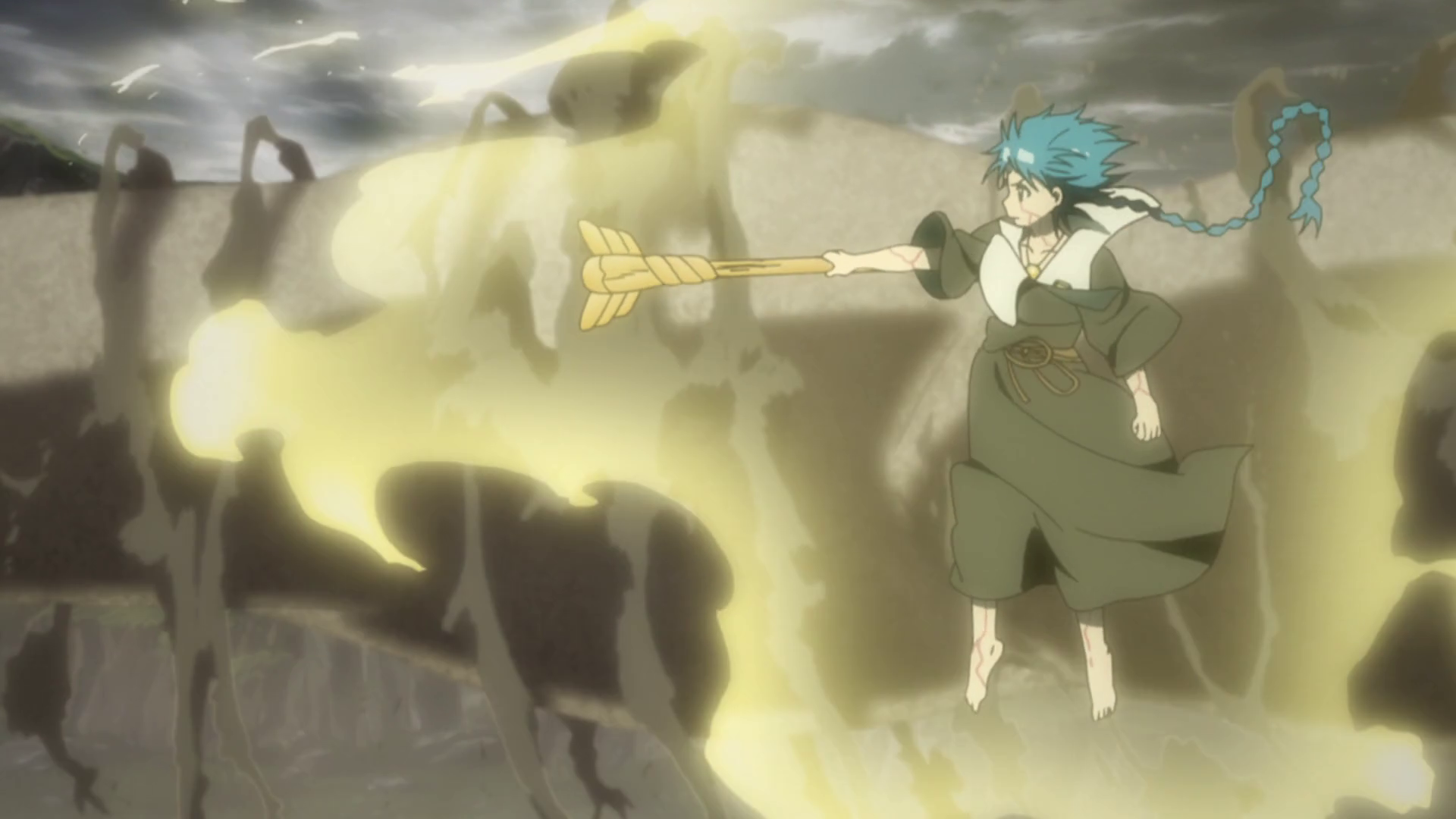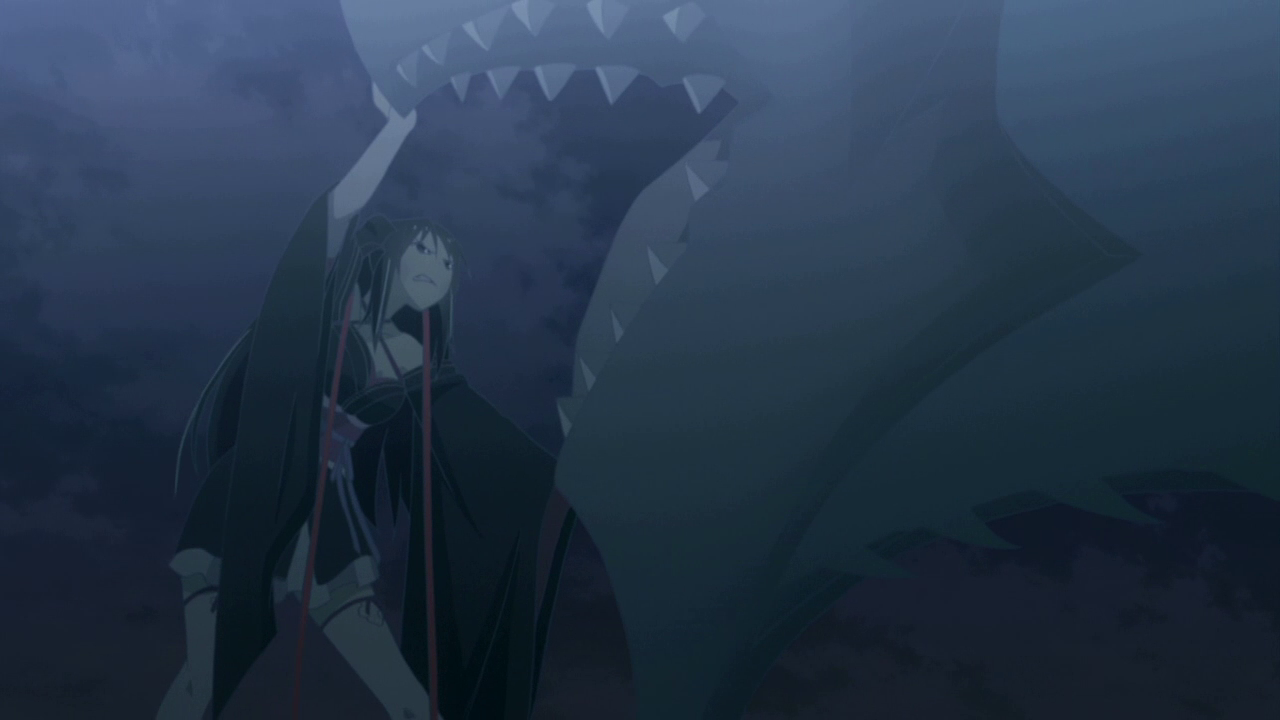01.03
It’s a new year, and that means it’s the perfect time to reflect on the previous one! Please join us as we discuss some of our favorite and least favorite anime of 2013. (There certainly were a lot of shows involving scissors in some major way last year. Don’t know what’s up with that.) Oh yeah, there was also that show about the giant naked people everyone loves. We don’t talk about it here, but yeah, Battle of Onslaughting Eotenas was good too. I ship Armin and Levi.
Bloody Marquis’ Picks
To be honest, I don’t really know what to say about myself as a blogger. I had half a mind to just take an Obama speech and replace any references to politics with anime, then call it a day. But that would be the lazy way out, so I could probably say that writing articles about Oreimo, Korra, and et cetera has probably helped broaden my style. After all, blogging is just another way to train yourself how to write. I will probably never be the guy who can whip out novella-length essays about shows, but you never know.
Monogatari Series: Second Season
I suppose that asking me my thoughts on Monogatari would be like asking Harlan Ellison his thoughts on James Cameron movies, so I’ll get my grievances out first. Monogatari’s the show with wonderful ideas and a very interesting approach to direction, but without someone who can reign in the often-questionable writing. Even the arcs I like have meandering discussions on scenes that just happened a second ago, causing the series to thoroughly ignore the “Show, don’t tell” approach to storytelling. Granted, there are points where the show uses dialogue as strength instead of a crutch, like in the scenes between Kaiki and Senjougahara. It’s a conversation between a dealer and his Faustus, with the two only being allied on the thinnest of terms in order to stop a greater threat. There was little interference by Araragi, and it felt like the show I was actually promised when I first heard about the series.
Kaiki is the protagonist that more light novels could use, a cynical guy working for his own ends who could easily outwit the head-in-the-clouds teenage leads. He didn’t fight for a better world, or for his friends, or any of that. He was in it for the business, which ironically gave him a more human outlook than a few of the other characters. Kaiki knew that what he did throughout his life was immoral, so he desired money in order to worm his way out of those troubles. In his words, “Money talks even in hell.” So while he was a bastard, he was a bastard this show needed. I salute Kaiki for that.
No Matter How I Look At It, It’s You Guys’ Fault I’m Not Popular!
I’m finding it hard to come up with a unique reason to love this show. Is it because it’s funny? Do Tomoko’s antics earn my empathy? Yes and yes, but these and many other reasons have been used to describe the appeal of this show. It’s easy to say “I love this show because Tomoko is basically me as an anime character!” or any variation of the phrase. After all, why would anyone admit to being like Tomoko? She exhibits the worst traits of human behavior without resorting to actual violence. She gives as much apathy as she gets, treating everyone around her as a potential stepping-stone to being popular. But then again, people have those moments. Where characters like Daria are the asocial teenagers we would have wanted to be, Tomoko’s the character some of us probably were in real life. Okay, not exactly, but you know there have been more than a few moments in the show that have mirrored your own to an excruciating extent. People have had moments where their parents catch them doing something embarrassing, or when their younger cousin stops idolizing them, or when they’re struggling to keep up with old acquaintances. Tomoko represents all of those failures, whether she is the victim or the instigator.
That’s what makes Tomoko interesting to me, in that many of her downfalls are often of her own creation. She probably wouldn’t be so unpopular if she just sat down and thought about what she was doing with her life, and that’s what strikes a chord, that sometimes we are the cause of our own misery. Sometimes, we create our own roadblocks without fully realizing it. But instead of admitting to that, we project that trouble onto other people like how Tomoko blames her unpopularity on everyone else. By doing that, she’s the mirror to her viewers, telling them that they can do better. We might think the world’s out to get us, but that’s more often that not the mind’s fog blinding us from a potential helping hand. Through all the times Tomoko fails to achieve any of her desires, it becomes bizarrely moving in a sense. And in some cases like the vibrator scene, it becomes hilariously cringeworthy.
Psycho-Pass
The cyberpunk genre has always grabbed me, with theories on how technology can either amplify or subtract from the human spirit. I always liked that aspect, questioning whether we as a species will grow too dependent on computers to abide by our own ideas. Psycho-Pass takes a pretty simple stance—whether or not dependence on authority takes away free will—and not only ponders on the subject, but forces characters like Akane and Shinya to see what it feels like to be on both sides. The two central leads are people working for the oppressive system, yet they’re quite aware and want to see changes to the status quo. They aren’t often reactionary and want to see something realized, without issues like the Sibyl system forcing them into a conclusion. But even though they work to uphold a sterile and often Orwellian society, the crimes they face make one wonder if civilization can truly be free without descending into chaos.
The villains such as Makishima see themselves as freedom fighters trying to bring emotion back into a stoic world, which would be a noble goal if not for abrasive methods like poisoning food supplies. So were brought to question if anarchy is preferable to utilitarianism, with those “Do the ends justify the means?” or “Is true peace really a good thing?” questions that Urobuchi usually puts in his shows. Yeah, there are plenty of bad shows that have asked those questions, but they came up with dud answers. Psycho-Pass gives equal weight to both sides, with Makishima’s literary allusions enlightening his goal while Akane struggles to keep her optimism afloat. The show likes to play with that idea, how good ideals can be led by bad people and vice-versa. And I hope that the second season will advance these concepts further.
Foggle’s Picks
Over the past year, I’ve learned a lot about myself – not just as a blogger, but as a person. I’ve become a much more positive guy in general, preferring to give people (and anime) the benefit of the doubt when possible. Being an asshole can be fun, but I look back at some of my old blog posts now and can do nothing but groan for behaving in such an immature way. Unlike nearly everyone to ever appear on a reality show, I am here to make friends. Make no mistake, I still enjoy being snarky and making jokes when possible… I just think I should be nicer about it. There’s enough negativity out there already, and I’d rather not add to that if I can help it. Then again, Diabolik Lovers exists. I can’t very well be positive about that abomination.
Diabolik Lovers
Diabolik Lovers is one of the most vile TV anime I’ve ever seen – perhaps ever made. This is a show where the watchability of any given episode can be determined based on the number of rape/attempted rape scenes it has. It romanticizes such delightful concepts as sexual assault, domestic abuse, stalking, false imprisonment, incest, the list goes on. As watching anime has mostly become a social thing for me these days, there are few shows I don’t eventually end up finishing – this is one of them. While I can usually force myself to sit through even the worst anime, I legitimately could not get past the 2/3 point of this one. On the rare occasion that it’s not being disgustingly misogynistic, it’s downright boring, ensuring that no enjoyment can ever be wrung from any of its 12 painful episodes. Avoid at all costs.
JoJo’s Bizarre Adventure
JoJo’s Bizarre Adventure is a series that needs no introduction. To many, it’s the definitive battle shounen (now seinen) manga, having run for 27 straight years without any sign of losing steam or running low on creativity. It is, perhaps, the most consistently excellent long-running series of its kind, and the second half of the TV anime adapts the majority of Part 2 – the story arc where it truly came into its own. If you like your action shows badass, silly, and more than a little homoerotic, you absolutely cannot go wrong with JoJo’s. At times its cheapness definitely shows through, potentially turning multiple scenes into little more than a slice of motion comic, but fantastic art design, voice acting, and music make it an extremely fun watch all the same. In spite of the obviously low budget, JJBA’s presentation stops just short of perfect. Music is a very integral part of the JoJo’s experience, even in the manga, and Taku Iwasaki’s compositions during the Battle Tendency arc are nothing short of brilliant; meanwhile, Coda’s “Bloody Stream” has quickly become one of my all time favorite anime openings, and Yes’ “Roundabout” fits perfectly as the ending theme. Definitely give this one a watch if you’ve yet to experience Hirohiko Araki’s truly *bizarre* epic (or just go read the original manga).
Kill la Kill
What can I possibly say about Kill la Kill that I haven’t said already? It’s an eccentric, fast-paced, ridiculous, and surprisingly smart homage to the crazy battle shounen series of yesteryear. It’s low budget but very well-directed, with extremely fun-to-watch action scenes and an awesome art style that seems to pull equally from both anime and western animation. It’s filled with loveable characters – both protagonists and antagonists alike – and sports an eclectic soundtrack that greatly benefits every scene. Kill la Kill doesn’t break new ground or rewrite the book on action cartoons, but it doesn’t have to. Much like Gurren Lagann before it, this is a show for people who love anime, plain and simple. It embraces many of the stupid tropes every fan of the medium knows all too well, cranking them up to increasingly over the top levels while simultaneously putting its own unique spin on things. It never feels too familiar or unfamiliar, and is sure to keep a smile firmly planted on your face… provided you can handle director Hiroyuki Imaishi’s trademark insanity and a metric ton of partial nudity.
Meganebu!
Meganebu! is the perfect example of a show that is – for all intents and purposes – beyond saving. Every single aspect of it, right down to the most minute details, is objectively terrible. And yet, I can’t help but love it. When viewed as a bizarre comedy, a farce deliberately poking fun at low quality fanservice shows targeted toward fujoshi, Meganebu! serves only to provide hearty laughs. It’s the same kind of surreal “humor” you’d expect to see in a perpetually death-slotted live action sketch show on Cartoon Network at 3:00 in the morning, but (presumably) accomplished by accident.
The jokes are nothing short of awful, but they’re so lame and horribly presented that they end up becoming brilliant. The incessant references to glasses – hell, even the sheer concept of a glasses club – will numb your mind within minutes, and by the end of the first installment, you’ll never want to hear anyone say “megane” ever again. The color scheme is bewilderingly ill-advised; so obnoxiously bright and vivid that it could potentially cause someone to need glasses if they were to watch multiple episodes in one sitting. The overall direction is often reminiscent Shaft on a bad day. The music is a nonsensical hodgepodge of groovy tunes, including a beautiful sting that happily announces “meganebu-uuuuuu!” Each episode ends with a non-horoscope and live action footage of random landmarks in Japan with glasses strategically strewn about them. And let’s not forget the pointless glasses imagery inserted into every single scene.
There is nothing good about Meganebu!, and that’s precisely why it’s amazing. It embodies the very essence of Studio Deen, to the point where the line between animated abortion and biting satire is irreconcilably blurred. I can’t help but love it for that.
Samurai Flamenco
I have no idea what to think about this show anymore. It became a fast favorite of mine over the course of its brilliant first seven episodes, which played out like a more down-to-earth and heartfelt version of Kick-Ass or Super. Masayoshi’s exchanges with Goto and others about becoming a real life Kamen Rider were filled with dry wit, and the creative ways in which his story gradually played out were intelligent and unique. However, everything changed with the unexpected plot twist halfway through. Now Samurai Flamenco has turned into a legitimate hero show, and while it’s still extremely fun to watch, I can’t say I like the new direction nearly as much as that of the initial installments. The superhero stuff is deliciously meta and ridiculous enough to be enjoyable, but the soul of the less absurd early episodes is sorely missed. I’d still absolutely recommend this series to any fan of superheroes and comedy, but I do so with a lot more trepidation than I would have had it stayed the course.
Lord Dalek’s Picks
So 2013 for me will probably best remembered as “The Year Hipsters Killed Gatchaman” (fuck you Nakamura). Not a great crop of shows by any stretch (and many were just downright dire) but some stuff held up better than others. Here now are three shows which one cour or more in 2013 that I would consider amongst my top shows of the year (and two which…no).
Blood-Lad
Blood-Lad, like Magi, is just dumb fun, but on a more satirical level. It features a good hearted if somewhat goofy protagonist going on a quest to bring the girl he is smitten with back from the dead in a plot is unashamedly lifted from many an Akira Toriyama book. And that’s perfectly ok, because that’s the joke. This is literally a love letter to 80’s shonen shlock and wears its influences like a badge of pride. Furthermore, the animation by Brains Base is fluid and the pacing never stops piling on moments that keep getting more and more comically absurd. Summer 2013 for me largely sucked. Blood-Lad and, to a lesser extent, Rozen Maiden Zuruckspulen, were the high points for me, and out of those two, Blood-Lad is the easiest to recommend.
Flowers of Evil
This show…. oh god… this show. Look its one thing to slag on the rotoscoping, which obviously looked fricken horrible, but that’s not the real problem. The problem is the story is terrible, the characters are worse, it goes absolutely nowhere at a pace slower than molasses, and the final episode just wastes our time with a bizarre pseudo-clip show of further chapters of the manga. None of which will be animated because Flowers of Evil sold a grand total of 6 copies in Japan and will likely do the same in the US despite the hilariously inaccurate overpraise by ANN who blew what measly reputation they had left in the process. Flowers of Evil… your horribleness is so damn obvious that you destroyed a website. Way to go!
From The New World
SSY started out last year and fairly slowly to boot with a group of preteens in the far distant future discovering the horrible truth of their idyllic existence. By the time the series entered its second cour in Winter of this year, that horrible truth began to seep out and manifest itself in a web of mind control and paranoia. Soon the original five kids were whittled down to just two, and the final arc set several years later showed the ultimate cost of their actions. To say the least, SSY’s third part is nothing short of a panicked adrenaline rush that poses a lot of questions about the ethics of nature vs. nurture and what makes people a so-called “superior being”, with tragic consequences. Because of that, SSY is, of all the shows that aired in 2013, probably the one that effected me the most on an emotional level (yes even more than Jojo’s). Its not a perfect series, the animation is crap, and the protagonists are a but under characterized, but that’s not important, its the experience, and this show offered one nothing else did this year.
Magi: The Labyrinth and Kingdom of Magic
By all accounts I should hate this. The plot is riddled with holes and continuity errors. The characters are pretty stock shonen stereotypes. Its written by FUCKING HIROYUKI YOSHINO. Etc, etc. And yet… I love it. Magi is probably the only shonen on right now that I actually look forward to on a regular basis. Its just fun, balancing incredible stupidity with surprisingly complex and dark themes. That and it looks gorgeous with better than average animation quality most of the time (there’s the occasional hiccup here and here). I hate to sound like a broken record here but its a crime that season 1 isn’t on Toonami already. Just…a crime.
Unbreakable Machine-Doll
This is literally everything that is fucking wrong with modern day anime boiled down to a disgusting, sexist, puerile mass that goes absolutely nowhere. Fanservice overkill, annoying characters (YAAAAAYAAAAAAA! RAAAAAAAAAAAAAAAAAAAAAaaaaaaaaaaaaaaaaaIIIIIIIIIIIIsHIIIIIIIIIIIIIIIIIIIIIIIIN!), stupid unconnected plots, an ending that resolves nothing and just trails off into the silence, it just goes on and on. For whatever reason, Funi decided to license Machine-Doll before it aired in Japan, expecting it to fly off shelves. …yeah that ain’t happening.
